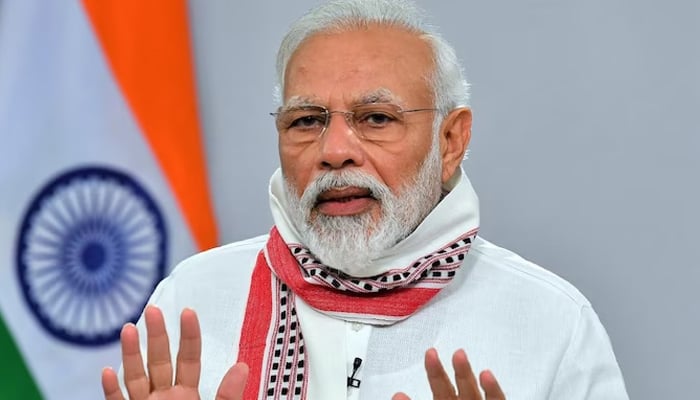Lok Sabha takes up no-confidence debate against Modi amid ruckus

[ad_1]
Indian parliament on Tuesday took up the discussion on a no-confidence motion against Prime Minister Narendra Modi over his silence on the deadly violence in the remote state of Manipur, in a session which is anticipated to last for 12 hours, local media reported.
Congress leader Gaurav Gogoi initiated the debate against the country’s Bharatiya Janata Party (BJP) government, which is expected to be a heated debate as it started with a ruckus in the Lok Sabha.
A central minister created a disturbance, saying that the debate was earlier said to be opened by senior Congress leader Rahul Gandhi, who returned to Lok Sabha on Monday after the country’s Supreme Court halted his criminal defamation conviction in the 2019 ‘Modi surname case’.
The extensive discussion on the no-confidence motion — also known as the no-trust motion will continue till Thursday, when PM Modi is scheduled to reply to it on the concluding day, August 10.
The recently formed alliance Indian National Developmental Inclusive Alliance (I.N.D.I.A) moved the no-confidence motion against the BJP-led government on July 26, nearly four days after the Monsoon Session began in the Indian Parliament.
The Indian premier will almost certainly defeat the effort, but proponents of the motion are aimed at forcing a statement from PM Modi on the Manipur crisis, the worst ethnic violence ever seen in the small state of 3.2 million.
It may be noted that Modi has maintained silence on what has “come close to a civil war” engulfing the northeastern state, where Modi’s Hindu nationalist BJP is in power.
The crisis was further escalated by a harrowing video showing two women being paraded naked and groped that went viral last month.
Though this forced the Indian premier to condemn the specific vile act, he remained short of words in addressing the overall conflict, which has seen over 150 deaths and over 50,000 displacements since the ethnic clashes that erupted in early May.
A no-confidence motion serves as a mechanism to assess the joint accountability of the governing administration.
As per a report by Hindustan Times, a no-confidence motion can be proposed if a Member of Parliament (MP) feels that the incumbent government doesn’t have enough support to stay in charge and do its duties.
This motion needs support from at least 50 other MPs and can only be initiated within the lower house of India’s bicameral Parliament, called Lok Sabha.
“Within a parliamentary democracy, the continuity of a government’s authority relies on its ability to command a majority within the directly elected body, the Lok Sabha. According to Article 75(3) of the Indian Constitution, a Council of Ministers, comprising members of the elected government, bears collective accountability to the Lower House.”
[ad_2]
